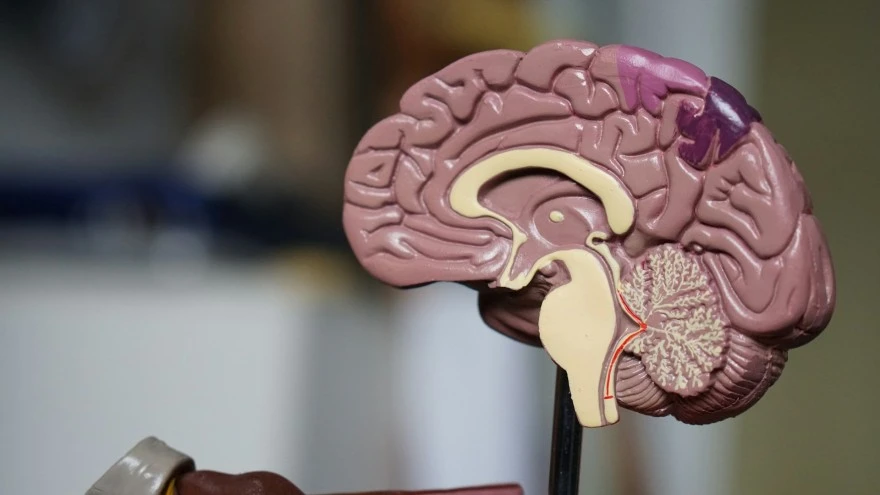Preventive Healthcare
Thyroid Disease: Understanding Symptoms, Causes & Risk Factors

Table of Contents
World Thyroid Day is observed on the 25th of May. On this day, doctors spread awareness about the thyroid gland, its importance in your overall health and the need for thyroid diagnosis for the timely detection of thyroid conditions. This day was chosen in honour of the European Thyroid Association (ETA), formed on May 25th 1965.
The thyroid is a butterfly-shaped gland at the base of your neck. It is an endocrine gland. It produces two hormones:
- Thyroxine
- Triiodothyronine
Your thyroid gland controls many vital functions of your body. These include heart rate, breathing, brain development and fertility, by producing these hormones. However, sometimes the thyroid gland produces too much or too little of these hormones, leading to,
- Hypothyroidism
- Hyperthyroidism
Apart from hypothyroidism and hyperthyroidism, two other conditions that could affect the thyroid are:
- Goitre or enlarged thyroid gland
- Thyroid cancer
These thyroid conditions can impact your health and therefore require medical attention.
On World Thyroid Day, doctors and medical institutions spread awareness about these thyroid conditions, their causes, symptoms, the need for thyroid diagnosis, and available treatment options.
Let us understand the symptoms, types, risk factors, causes, tests for thyroid diagnosis and treatment options for thyroid disease.
What Is Thyroid Disease?
Thyroid disease is a common endocrine disorder that affects a lot of people worldwide. The thyroid gland is located in the neck and produces hormones that regulate metabolism, growth and development. Thyroid disease can cause several symptoms, including fatigue, weight gain or loss, hair loss, dry skin and mood changes.
Types of Thyroid Disease
The following are the four main types of thyroid disease:

1. Hypothyroidism: This is when the thyroid gland does not produce enough hormones. Common symptoms include fatigue, weight gain, constipation and feeling cold all the time. Hypothyroidism can be treated with medication and lifestyle changes.
2. Graves’ Disease: This is an autoimmune disorder that causes the thyroid gland to overproduce hormones. Symptoms include anxiety, insomnia, weight loss and a rapid heartbeat. Graves’ disease can be treated with medication and radiation therapy.
3. Hashimoto’s Disease: This is another autoimmune disorder that attacks the thyroid gland and prevents it from producing hormones properly. Symptoms include fatigue, weight gain, depression and dry skin. Hashimoto’s disease can be treated with medication and lifestyle changes.
4. Thyroid Cancer: This is a rare type of cancer that affects the thyroid gland. Symptoms can include a lump in the neck, hoarseness, difficulty swallowing and shortness of breath. Thyroid cancer can be treated with surgery, radiation therapy or chemotherapy.
Symptoms of Thyroid Disease
Symptoms of thyroid conditions are often similar to other health conditions. Therefore, observing your body for any changes and reporting these to your doctor at the earliest is crucial. With the help of an early thyroid diagnosis, your doctor will be able to determine your condition and prescribe appropriate medication.
Symptoms of the thyroid condition are divided into two categories:
- Symptoms of hypothyroidism (when the thyroid gland makes too little thyroid hormone)
- Symptoms of hyperthyroidism (when the thyroid gland makes too much thyroid hormone)
Symptoms of Hypothyroidism

- Fatigue or exhaustion
- Weight gain
- Dry and coarse hair
- Hair loss
- Hoarse voice
- Heavy and frequent menstrual periods
- Sensitivity to cold temperature
- Forgetfulness
Symptoms of Hyperthyroidism

- Weight loss
- Muscle weakness
- Tremors or trembling
- Sleeplessness
- Anxiety and nervousness
- An enlarged thyroid gland
- Irregular menstrual periods or no periods
- Sensitivity to hot temperature
- Irritation in the eyes or other vision problems
Causes of Thyroid Disease
Hypothyroidism and hyperthyroidism are often caused due to other health conditions.
Health conditions that cause hypothyroidism:
- Iodine deficiency.
- Non-functioning thyroid gland.
- Thyroiditis or swelling of the thyroid gland.
- Hashimoto's thyroiditis, where the body's cells attack the thyroid and damage it.
- Postpartum thyroiditis. It occurs in some women after delivery.
Health conditions that cause hyperthyroidism:
- Thyroiditis
- Excessive iodine or too much iodine in the body.
- Graves' disease, where the thyroid gland produces excess thyroid hormone.
- Nodules that are overactive in the thyroid gland.
Risk Factors of Thyroid Disease

Anyone can develop thyroid disease. Not only adults but also infants, teenagers and the elderly can develop the condition. Thyroid disease could also be present at birth and increase along with age. Per studies, about 42 million people in India have thyroid diseases. Thyroid diagnosis can help detect abnormalities in the thyroid gland and its functioning.
You could be at a higher risk of developing thyroid disease if
- You have a family history of thyroid disease.
- You take iodine medications.
- You are above 60.
- You have had a thyroid condition or cancer in the past.
You are at a greater risk of developing thyroid disease if you have health conditions such as:
1. Type 1 Diabetes:
It is a condition where your pancreas produces very little or no insulin.
2. Lupus:
It is a disease where your immune system attacks your tissues and organs.
3. Rheumatoid Arthritis:
It is an autoimmune and inflammatory disease. In this, your immune system attacks healthy cells. It leads to painful and swollen joints.
4. Pernicious Anaemia:
It is a deficiency in red blood cells when your body can't absorb adequate vitamin B12.
5. Primary Adrenal Insufficiency:
It is a disorder where the adrenal glands do not produce sufficient cortisol and aldosterone hormones.
6. Sjogren's Syndrome:
It is an immune system disorder. It causes dry mouth and dry eyes.
7. Turner Syndrome:
It is a disorder that affects development in females leading to short stature, heart defects, infertility, late puberty and learning disabilities.
Let us also look at the causes of thyroid disease.
Diagnosis of Thyroid
As thyroid disease symptoms are similar to symptoms caused due to other health conditions. Your doctor will advise thyroid tests to understand if the cause of symptoms is an abnormal thyroid gland.
Thyroid diagnosis includes tests such as:
- Blood Tests:
These tests measure the amount of thyroid hormones in your blood. These are simple blood tests that can be done in the comforts of your home. The blood sample is taken from a vein in your arm and analysed in the laboratory. This is done to check if you have hypothyroidism or hyperthyroidism.
These blood tests are:
- Thyroid-stimulating hormone (TSH) to check your thyroid hormone balance
- T4 (Thyroxine). Low T4 indicates hypothyroidism whereas high T4 indicates hyperthyroidism
- T3 (Triiodothyronine). Low T3 levels indicate hypothyroidism, whereas high T3 levels indicate hyperthyroidism.
- Imaging Tests:
Your doctor may advise a thyroid scan to check the size and shape of the thyroid and any abnormal growths, like nodules.
- Physical Exam:
Your doctor will feel your neck for an increase in the size of your thyroid gland or the presence of any growth.
Based on the thyroid diagnosis, your doctor will prescribe a treatment plan.
The treatment for hyperthyroidism includes:
- Anti-thyroid medications to stop the thyroid from making the hormone.
- Radioactive iodine to prevent the thyroid from making excess hormones.
- Beta-blockers to manage your symptoms.
- Surgery to remove the thyroid.
The treatment for hypothyroidism includes:
- Thyroid replacement medication to help you manage your condition and live an active life.
Treatment for Thyroid Disease
The thyroid gland makes two main hormones: thyroxine (T4) and triiodothyronine (T3). These hormones enter the bloodstream and are carried to every part of the body. They help the body use energy, keep warm and keep the brain, heart, muscles and other organs working as they should.
Treatment for thyroid disease includes the following:
• Levothyroxine: This is a synthetic hormone that replaces the thyroid's natural hormones.
• Thyroid Hormone Replacement Therapy: This involves taking synthetic hormones to replace any missing from the body.
• Surgery: In certain cases, surgery may be recommended to remove all or part of the thyroid gland.
• Radioactive Iodine Therapy: This treatment uses radioactive iodine to destroy any remaining cancer cells in the thyroid after surgery.
• Alternative Medicine: Some people choose to use herbal supplements and other alternative treatments for their thyroid condition. However, these should only be taken after consulting with your doctor or a qualified healthcare professional.
It is important to seek medical advice before beginning any treatment for thyroid disease as each person’s case is unique and requires individualised care.
Prevention of Thyroid Disease
Thyroid disease can be prevented by following a healthy lifestyle, eating a balanced diet that is rich in vitamins and minerals, exercising regularly, avoiding smoking and alcohol and getting regular medical checkups.
Taking steps to manage stress levels may also help reduce the risk of developing thyroid disease. Additionally, if you have a family history of thyroid problems, you should talk to your doctor about regular screenings and genetic testing.
Finally, individuals should make sure they are receiving the recommended daily intake of iodine to prevent thyroid dysfunction.
Conclusion
Consult your doctor if you notice changes in your weight, sensitivity to hot or cold temperature, exhaustion or muscle weakness. A detailed thyroid diagnosis will help your doctor study your thyroid gland and its functioning and determine if it is a thyroid condition.
Your doctor will recommend a thyroid panel to check T3, T4 and TSH. It is advisable to get these tests done at a certified pathology laboratory like Metropolis India. It is trusted by leading health institutions in the country and is known for its accurate reports.


























